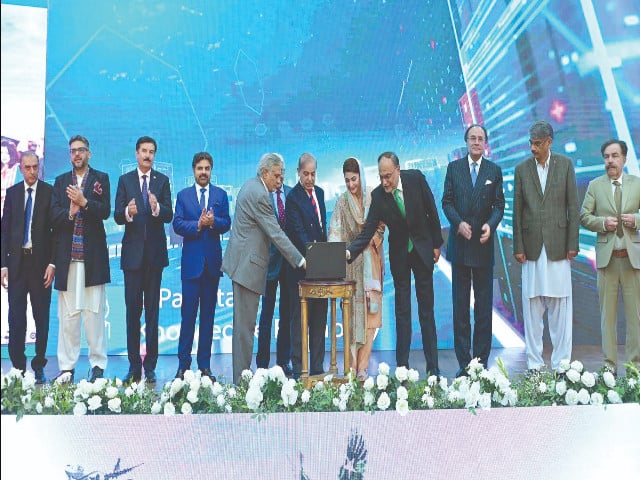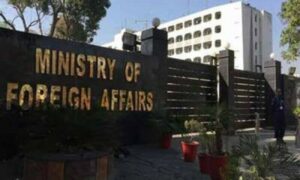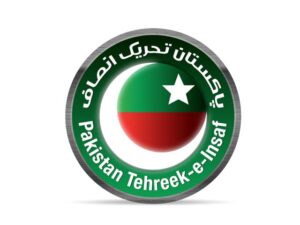Pakistan finds itself at a defining crossroads, facing the intertwined challenges of economic uncertainty, political instability, and deep social disparities. Recognizing the urgency to address these issues, the Government of Pakistan, under the visionary leadership of Prime Minister Shehbaz Sharif, has embarked on an ambitious journey of economic transformation.
This journey is encapsulated in Uraan Pakistan, a groundbreaking initiative that seeks to propel the nation toward becoming one of the world’s leading economies. By prioritizing innovation, inclusivity, and sustainability, Uraan Pakistan marks a decisive step in reshaping Pakistan’s future and unlocking its true potential on the global stage.
This initiative is deeply rooted in the ideals of Quaid-e-Azam Muhammad Ali Jinnah, reflecting his vision of well-being for the masses, social justice, and the protection of fundamental rights. The program prioritizes innovation, inclusivity, and sustainability, with a firm commitment to the well-being of the people. By addressing the country’s pressing socio-economic challenges through a robust framework; Uraan Pakistan has laid the groundwork for a prosperous and competitive future.
This holistic approach, which balances economic growth with social justice, is essential for transforming Pakistan into a developed nation, much like other global leaders who have fostered growth through inclusive and forward-thinking policies.
The vision of Uraan Pakistan presents an optimistic yet feasible roadmap for economic growth, aligning with the country’s vast untapped potential. It seeks to make Pakistan the next Asian Tiger by harnessing its untapped potential and fostering a society where economic growth is equitable, sustainable, and inclusive. The program closely mirrors the strategies employed by successful economies that have risen to global prominence, such as South Korea and Singapore. These nations have thrived by focusing on key sectors like exports, digital innovation, infrastructure, and social equity.
By prioritizing these interconnected domains through the 5Es Framework, Uraan Pakistan aims to create a competitive, equitable, and sustainable economy through five critical areas: exports, digital transformation, environment and climate change, energy and infrastructure development, and equity and empowerment. Each of these pillars addresses a specific aspect of the country’s development, ensuring that no sector or community is left behind. By focusing on these interconnected domains, the program envisions an economy that is not only globally competitive but also socially just.
Exports are central to Uraan Pakistan’s strategy, aiming to diversify the economy, attract foreign investment, and enhance Pakistan’s global market position. By fostering innovation and boosting productivity, the government seeks to replicate the success of export-driven economies like South Korea and Malaysia. With vast untapped potential in sectors such as textiles, agriculture, and technology, Pakistan is well-positioned to achieve significant economic transformation through this approach.
Another pivotal pillar of Uraan Pakistan is digital transformation under the banner of E-Pakistan. In today’s rapidly evolving global economy, integrating advanced technology is mandatory for sustained growth. The program seeks to empower Pakistan’s workforce, improve governance, and foster innovation by embracing digital tools and solutions.
By accelerating the shift toward a knowledge-based economy, Pakistan can not only boost its productivity but also provide its youth with opportunities in emerging fields such as artificial intelligence, blockchain, and e-commerce. This digital revolution will also enhance transparency and efficiency in governance, paving the way for citizen-centric service delivery and robust accountability mechanisms.
The emphasis on environment and climate change highlights Pakistan’s proactive stance toward sustainability. As one of the most vulnerable countries to climate change, Pakistan faces severe risks to its agricultural sector, water resources, and ecological balance. Through Uraan Pakistan, the government is addressing these challenges with climate adaptation measures, renewable energy initiatives, and sustainable practices to safeguard natural resources.
Pakistan’s commitment to climate action is further exemplified by its active participation in international platforms like COP 29, where the nation continues to advocate for stronger climate commitments and adaptation support for developing countries. By integrating environmental concerns into its national development strategy, the government is not only ensuring food and water security but also paving the way for a green economy. This forward-thinking approach aligns with global trends and demonstrates Pakistan’s determination to be a responsible global actor, contributing to global sustainability while enhancing its resilience against climate change.
Energy and infrastructure development are equally critical to the success of Uraan Pakistan. The program prioritizes affordable and green energy solutions to reduce production costs, attract foreign investment, and bolster industrial growth. Pakistan’s energy sector has long been plagued by inefficiencies and shortages, which have stunted its economic potential.
By addressing these issues head-on, the government aims to enhance energy security and ensure a stable energy supply, which is essential for fostering industrial growth. Alongside this, the initiative includes plans for modernizing transportation networks, developing industrial zones, and improving connectivity across the country. Together, these efforts are designed to create the infrastructure necessary to support economic activities, thereby laying a strong foundation for sustained growth and prosperity.
The pillar of equity and empowerment is a cornerstone of Uraan Pakistan, reflecting the government’s unwavering commitment to social justice and inclusivity. seeks to uplift marginalized groups, including women, youth, and the underprivileged, by ensuring that they benefit from the country’s economic progress. This focus on reducing inequalities and creating opportunities for all is a testament to the program’s people-centric approach.
By addressing socio-economic disparities, the initiative aims to foster a sense of belonging and shared responsibility among citizens, which is crucial for national harmony and progress. Under the leadership of Prime Minister Shehbaz Sharif, the government has introduced various initiatives aimed at uplifting marginalized communities, including poverty alleviation programs, skill development for youth, and increased access to education and healthcare for women and rural populations.
These efforts align with Shehbaz Sharif’s broader vision of inclusive growth, ensuring that the benefits of economic progress reach all corners of society. Initiatives like the Prime Minister’s Youth Programme and the Pakistan Bait ul Mal have already demonstrated tangible benefits in reducing inequality, providing financial support, and fostering entrepreneurship among the poorest and most vulnerable.
By creating opportunities for these groups, Uraan Pakistan reinforces the idea that national progress must be shared and inclusive. This focus on reducing socio-economic disparities is not just a matter of fairness; it is a strategic approach to national cohesion and long-term stability, which is crucial for fostering a sense of unity and collective responsibility among Pakistan’s diverse population. Through these people-centric initiatives, the government is aiming to build a foundation for a prosperous, harmonious, and resilient Pakistan.
A defining feature of Uraan Pakistan is its emphasis on transparent implementation and citizen engagement. The establishment of the National Economic Transformation Unit (NETU) ensures that the program’s objectives are executed efficiently and effectively. NETU collaborates with government agencies, private entities, academic institutions, and international partners to implement evidence-based policies and monitor progress using a Results-Based Management (RBM) framework.
This ensures accountability and transparency, which are essential for building public trust. Additionally, the Champions of Reforms network invites professionals from diverse backgrounds to contribute to policymaking and governance. By fostering citizen participation, the program instills a sense of ownership and collective responsibility, strengthening the social fabric of the nation. This inclusive approach not only enhances the program’s effectiveness but also ensures that it remains responsive to the needs and aspirations of the people.
The targets outlined in Uraan Pakistan are ambitious yet achievable. Over the next five years, the government aims to achieve 6% annual GDP growth, boost exports to $50 billion, reduce inflation to 6%, and expand the ICT freelancing industry to $5 billion. Other goals include cutting greenhouse gas emissions by 50%, achieving 10% renewable energy in the power mix, and reducing income poverty by 13%. These targets reflect the program’s comprehensive approach to development, addressing economic, social, and environmental dimensions simultaneously.
As Pakistan approaches its centennial in 2047, Uraan Pakistan lays the foundation for a long-term vision of prosperity and progress. The Pakistan Centennial 2047 Lab serves as a platform for collaboration and innovation, crafting a roadmap for the nation’s future. Under the supervision of the Prime Minister, this initiative aims to position Pakistan as a global leader through regional connectivity, modern infrastructure, and a knowledge-driven economy.
The success of similar initiatives in other countries highlights the transformative potential of well-executed development programs. Malaysia’s strategic focus on export-led industrialization and Vietnam’s emphasis on digital transformation have propelled them to remarkable economic success. By drawing lessons from these examples and adapting them to its unique context, Pakistan has the opportunity to replicate their achievements and secure a brighter future for its citizens.
In essence, Uraan Pakistan is not just a policy framework; it is a bold vision for the nation’s future. It represents the government’s unwavering commitment to addressing long-standing challenges while embracing innovation, inclusivity, and sustainability. By focusing on the 5Es Framework and upholding the principles of democratic governance, political stability, and shared vision, the initiative charts a course for a prosperous and equitable Pakistan. With the resolve and determination to unlock the nation’s full potential, Uraan Pakistan emerges as a beacon of hope, embodying the nation’s resolve, charting a path toward a prosperous, more inclusive future for generations to come.
- Desk Reporthttps://foresightmags.com/author/admin/
- Desk Reporthttps://foresightmags.com/author/admin/
- Desk Reporthttps://foresightmags.com/author/admin/
- Desk Reporthttps://foresightmags.com/author/admin/







